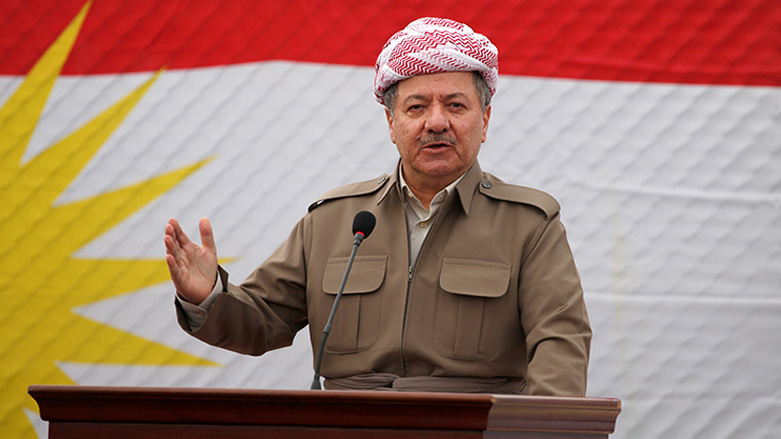Women’s Day: Masoud Barzani highlights role of Kurdish women throughout history

ERBIL (Kurdistan 24) – The President of the leading Kurdistan Democratic Party (KDP), Masoud Barzani, on Friday took to social media to share his message of gender equality, marking International Women’s Day by stressing the role of Kurdish women in the fight for Kurdish rights and the pursuit of justice throughout history.
“On International Women’s Day, I am honored to reiterate my message on the importance of the role of Kurdish women throughout our history who fought in pursuit of justice and Kurdish rights. Happy International Women's Day to all the women of Kurdistan and around the globe,” Barzani stated on his official Twitter account.
On International Women's Day, I am honored to reiterate my message on the importance of the role of Kurdish women throughout our history who fought in pursuit of justice and Kurdish rights. Happy International Women's Day to all the women of Kurdistan and around the globe
— Masoud Barzani (@masoud_barzani) March 8, 2019
Barzani, the former President of the autonomous Kurdistan Region, currently holds no governmental post but continues to remain an important Kurdish political figure in the Kurdish region and Iraq.
International Women's Day is celebrated on March 8 every year across the world. In some countries, it is considered a public holiday. In others, it is a day of protest; and for most, it is a day that celebrates womanhood.
Kurdish women have traditionally and historically played a significant role in Kurdish society and politics. Over the past decades, women have fought alongside men against the oppressive states and governments, as well as working hard to secure Kurdish rights and preserve the Kurdish identity.
The first journal for Kurdish women, Dengî Afiret - “Woman’s Voice” - was published in 1953. Following the overthrow of the Iraqi monarchy in 1958, the Union of Kurdish Women lobbied for legal reforms in the Iraqi civil law system and succeeded in bringing marriage under civil control and abolishing honor killing.
Generally, Kurdish women’s rights and gender equality have considerably improved in the 21st century in the Kurdistan Region, with progressive movements burgeoning in its larger cities. However, organizations continue to report on issues related to gender-based violence that persist, such as forced marriages, honor killings, Female Genital Mutilation (FGM) in the Kurdistan Region.
Editing by Nadia Riva
